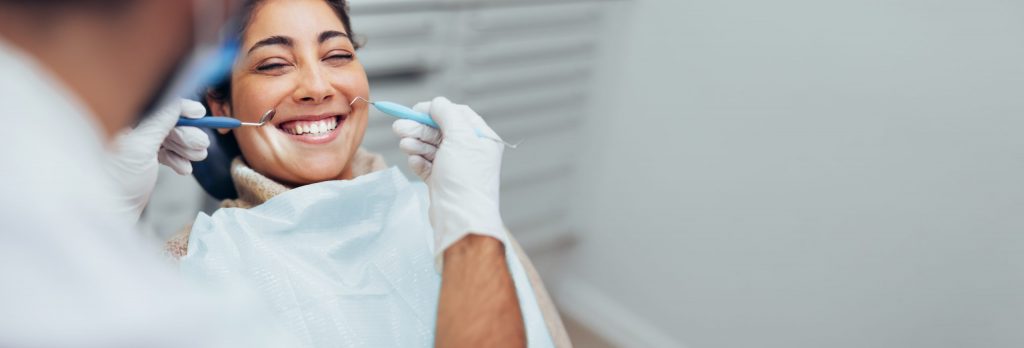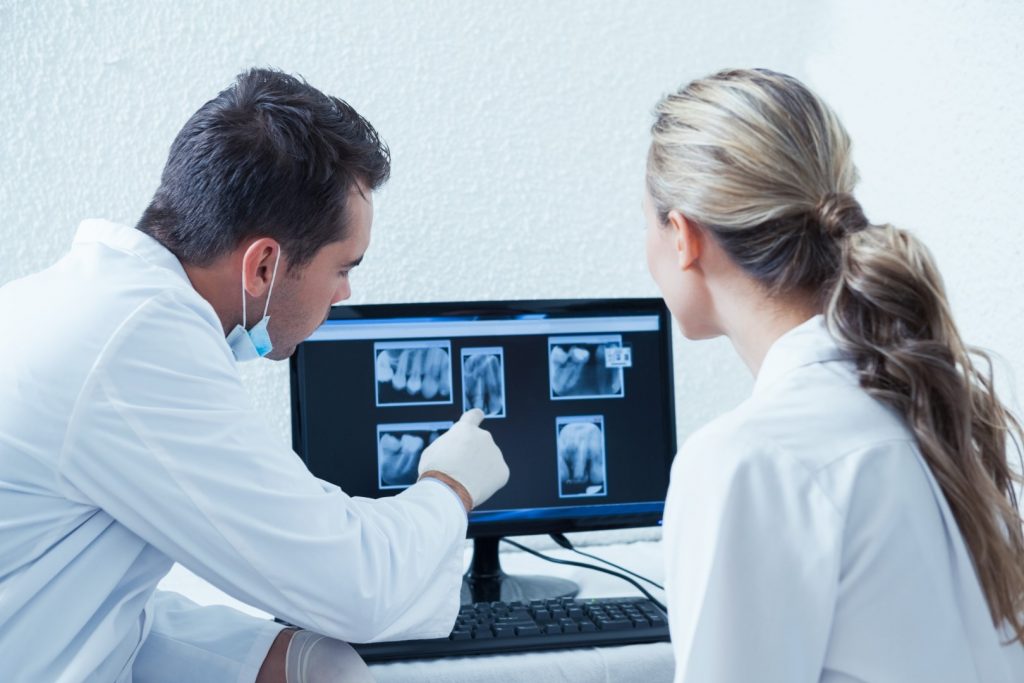Peak Smile Season Discount Coupon
Present this coupon to Penn Dental Family Practice at your appointment from February 20th to April 30th, 2024, for up to 15% off on one procedure in your treatment plan!

Oral cancer affects thousands of Americans every year. As many as 11.5 adults per 100,000 develop oral cancer, according to data from the National Institute of Dental and Craniofacial Research. Although the average age of diagnosis is 62, oral cancer can happen to anyone at any time. If you or a loved one have oral cancer, oral cancer specialists in Philadelphia at Penn Dental Family Practice (PDFP) can help support your quality of life.
 There are two major types of oral cancer: those occurring in the oral cavity and those in the oropharynx. Oral cavity cancers include the lips, roof and floor of the mouth, gums, and most of the visible tongue. The oropharynx refers to the middle of the throat, where the tonsils and base of the tongue are located. More than 90% of head and neck cancers arise from squamous cells in the tissues that line the structures of these areas.
There are two major types of oral cancer: those occurring in the oral cavity and those in the oropharynx. Oral cavity cancers include the lips, roof and floor of the mouth, gums, and most of the visible tongue. The oropharynx refers to the middle of the throat, where the tonsils and base of the tongue are located. More than 90% of head and neck cancers arise from squamous cells in the tissues that line the structures of these areas.
Men are twice as likely as women to develop oral cancer. The primary risk factors include tobacco use, alcohol use, human papillomavirus infection, sun exposure, and a weakened immune system. Precancerous conditions of the mouth can become oral cancers and need to be monitored.
 Early signs of oral cancer may go unnoticed or be difficult to detect on examination. However, if symptoms persist, it’s important to see a doctor as soon as possible. Common signs and symptoms of oral cancer include:
Early signs of oral cancer may go unnoticed or be difficult to detect on examination. However, if symptoms persist, it’s important to see a doctor as soon as possible. Common signs and symptoms of oral cancer include:
It’s crucial to detect oral cancer early on when more treatment options are available. At PDFP, we recommend that all patients over 60 come in for a checkup every six months. Each visit includes a professional dental cleaning and cancer screening. These visits are important not only in promoting strong oral health but also in ensuring that we can address incipient cancers while they’re most treatable.
Treatment is most successful when started as soon as possible after a cancer diagnosis. However, patients who begin a treatment plan when the cancer has progressed to moderate and advanced stages have a survival rate of less than 60%. That’s why we remind patients that getting regular cancer screenings may be the single most important strategy to protect their oral health.
You should see an oral cancer doctor, such as a dental oncologist.
Oral medicine plays a crucial role in the continuing care of oral cancer patients. This specialty combines the fields of medicine and dentistry to treat conditions of the oral cavity. An oral medicine specialist provides nonsurgical management of these conditions.
Oral cancer treatments can cause side effects in the mouth, teeth, and salivary glands, so patients often need additional targeted oral care. Your PDFP oral cancer specialist will be an important resource and support throughout the process.
This condition can result when radiation therapy is used to target oral cancers. In some cases, a customized oral hygiene regimen may be sufficient in addressing dry mouth. In others, your oral medicine doctor may prescribe a medication to stimulate the salivary glands to reduce discomfort and prevent cavities from developing during this period of limited salivary flow.
Oral cancer treatments can cause mouth sores to form on the inside of the mouth or on the lips. These sores, also known as oral mucositis, may be accompanied by a painful burning sensation, which can range in intensity from a mere inconvenience to a severe complication.
Patients who receive radiotherapy alone or with chemoradiation are at risk for developing these, and they may experience considerable pain while eating and drinking. Topical numbing agents (e.g., mouth rinses) may help relieve symptoms.
Poor oral health prior to oral cancer treatment can increase the risk of infection and other problems. Bacteria and fungi can live in the mouth and develop into an infection while the immune system is weakened from radiation or chemotherapy. Other factors that contribute to greater susceptibility include the cancer type, the amount of radiation used, and the stability of blood cell counts.
Before undergoing oral cancer treatment, we recommend addressing any underlying or long-term dental issues with an appropriate specialist. At PDFP in Philadelphia, we offer a wide array of dental specialties under the same roof, such as periodontics, prosthodontics, endodontics, and oral surgery. If an infection does occur during mouth cancer treatment, your oral cancer specialist will work with you to prescribe the right medication.
If you or a loved one has been recently diagnosed with oral cancer and are undergoing oral cancer treatment in Philadelphia, including an oral medicine doctor on your healthcare team from the outset will provide pain relief and peace of mind. With the support of an oral cancer specialist, you can address oral complications quickly and minimize the discomfort of common side effects.
At PDFP, we’ll work with you to find affordable solutions to your oral conditions so that you can receive the care you need in a timely manner. Schedule an appointment with one of our oral medicine specialists by using this form or by calling 215-898-7337.
Get Your Appointment Now
We look forward to serving you and your family.
Send us a message and we will contact you for scheduling and availability.
If you are a patient of record and this is a dental emergency, please call 215-898-PDFP (7337). Emergency appointments are only made for patients of record.